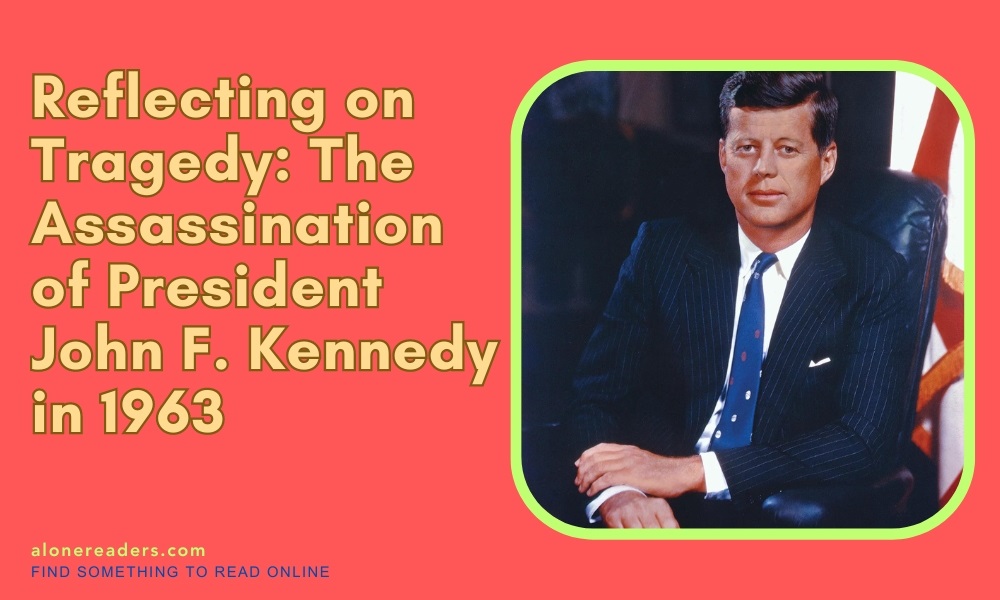
On November 22, 1963, the United States was struck by one of the most shocking and heartrending events in its history—the assassination of President John F. Kennedy. As his motorcade slowly made its way through Dealey Plaza in Dallas, Texas, the unimaginable happened. President Kennedy, a vibrant symbol of hope and progress, was fatally shot, plunging the nation into a deep state of mourning and leaving a scar on the American psyche that would linger for generations.
The events of that day began like any other presidential trip, with President Kennedy and his wife, Jacqueline, receiving a warm welcome from enthusiastic crowds in Fort Worth before flying to Dallas. The President was scheduled to speak at a luncheon at the Dallas Trade Mart. The sun was shining brightly after a rainy morning, mirroring the optimism that Kennedy had instilled in his fellow Americans. As the presidential limousine turned onto Elm Street, smiles and cheers were abruptly replaced by confusion and horror. Shots rang out, and within seconds, a sequence of events unfolded that led to the president slumping over, fatally wounded.
The immediate aftermath was chaotic. Secret Service agents sprang into action, shielding Jacqueline Kennedy and rushing the President to Parkland Memorial Hospital, where he was pronounced dead shortly after arrival. Vice President Lyndon B. Johnson, who was three cars behind Kennedy in the motorcade, was swiftly taken to safety and sworn in as the new president just hours later aboard Air Force One, with Jacqueline Kennedy, still wearing her blood-stained pink Chanel suit, standing by his side.
The assassination was not just a personal tragedy for the Kennedy family but a national crisis that tested the resilience of the American government and its people. Television and radio networks interrupted regular programming to broadcast hours of non-stop coverage, uniting the grief-stricken nation. Schools across the country dismissed students early as the news spread, and people gathered in public places to mourn together, many unable to hold back tears.
In the days that followed, the world watched as the United States grappled with its grief and the pressing questions about the assassination. The alleged assassin, Lee Harvey Oswald, was arrested on the same day but was shot two days later by nightclub owner Jack Ruby before he could stand trial, complicating the investigation and fueling conspiracy theories that persist to this day.
President Kennedy's funeral was held on November 25, declared a national day of mourning. Heads of state and representatives from over 100 countries came to pay their respects, and millions of people lined the streets of Washington D.C. to watch the horse-drawn caisson bearing Kennedy’s coffin. The image of Jacqueline Kennedy, clad in black and accompanied by her two young children, Caroline and John Jr., who saluted his father's coffin, remains one of the most poignant and iconic images of the 20th century.
Kennedy’s death marked the end of what had been seen as a particularly vibrant period in U.S. politics. Known as "Camelot" for its idealism and nobility, Kennedy’s presidency had been characterized by both significant tensions, like the Cuban Missile Crisis, and great hopes, including the push for civil rights and the mission to land a man on the moon.
The assassination also had a profound impact on how the American public viewed security and the vulnerability of their leaders. It led to sweeping changes in the Secret Service and increased security measures for high-ranking officials. Additionally, it spurred the passing of the 25th Amendment, which clarified the succession process in the event of a president's disability or death.
Looking back, the assassination of John F. Kennedy remains a defining moment in American history. It is not just remembered for the tragedy itself but for the indelible mark it left on the nation's collective consciousness. It challenged Americans to reflect on issues of leadership, security, and the direction of their country, sparking discussions that continue to influence public policy and political discourse. As the years pass, the legacy of that fateful day continues to resonate, a somber reminder of the fragility of life and the resilience of a nation in mourning.